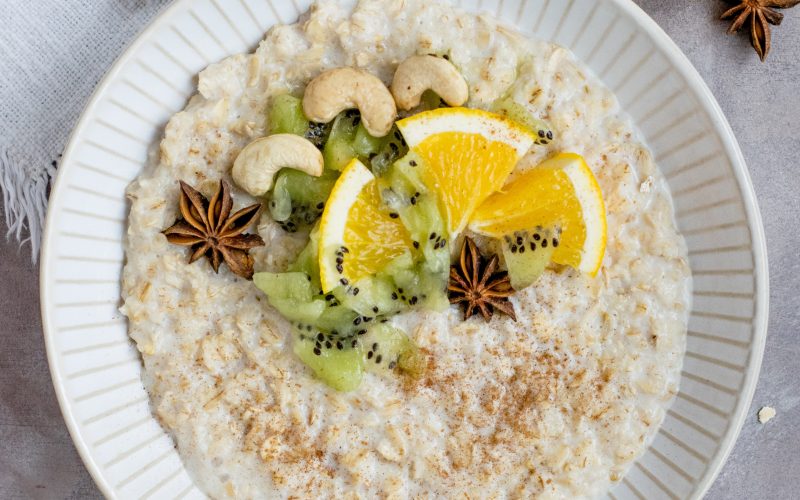Introduction:
The role of diet in cancer prevention and treatment has been a subject of extensive research. In recent years, scientists have discovered a fascinating link between dietary fiber, the gut microbiome, and cancer treatment outcomes. This article explores the intriguing connection between fiber, the microbiome, and how dietary changes can potentially enhance cancer treatment.
The Gut Microbiome and Cancer:
The gut microbiome, a complex ecosystem of trillions of microorganisms residing in our gastrointestinal tract, plays a vital role in maintaining our health. Recent studies have highlighted the significance of the gut microbiome in cancer development, progression, and response to treatment. An imbalanced microbiome, known as dysbiosis, has been associated with increased inflammation, impaired immune function, and a higher risk of certain cancers.
Fiber and Microbiome Health:
Dietary fiber, found in fruits, vegetables, whole grains, legumes, and nuts, serves as a crucial fuel source for beneficial gut bacteria. When we consume fiber-rich foods, it passes through the digestive system largely undigested and reaches the colon, where it interacts with the microbiome.
Fiber acts as a prebiotic, providing nourishment for beneficial bacteria, which ferment it into short-chain fatty acids (SCFAs). These SCFAs, particularly butyrate, have numerous health benefits. They help maintain a healthy gut environment, strengthen the intestinal barrier, reduce inflammation, and support immune function.
The Impact of Fiber on Cancer Treatment:
Research suggests that the composition of the gut microbiome can influence the efficacy of cancer treatments such as chemotherapy, immunotherapy, and even radiation therapy. Certain beneficial bacteria can modulate the body’s immune response, enhance the anti-tumor effects of treatment, and improve drug metabolism.
Fiber-rich diets have been shown to promote the growth of beneficial bacteria, leading to an increase in SCFA production. These SCFAs help create an environment that supports the immune system’s anti-cancer activity, potentially improving treatment outcomes.
Clinical Studies and Promising Findings:
Clinical studies in both animal models and human subjects have provided encouraging results. For example, researchers found that increasing fiber intake in mice led to favorable changes in the gut microbiome and enhanced response to immunotherapy for melanoma.
In a study involving colorectal cancer patients, higher fiber consumption was associated with increased abundance of beneficial bacteria and improved treatment response. Other studies have shown that a high-fiber diet can reduce the side effects of chemotherapy, such as gastrointestinal toxicity and immune suppression.
Practical Recommendations:
Incorporating more fiber into the diet can be achieved through simple dietary changes. Here are some practical recommendations:
- Emphasize plant-based foods: Increase the consumption of fruits, vegetables, whole grains, legumes, nuts, and seeds. These are rich in fiber and provide essential nutrients.
- Opt for whole grains: Choose whole grain options such as whole wheat bread, brown rice, quinoa, and oats over refined grains.
- Include a variety of vegetables: Incorporate a colorful array of vegetables into your meals, both cooked and raw, to maximize fiber intake.
- Experiment with legumes: Add beans, lentils, chickpeas, and other legumes to soups, stews, salads, and side dishes for a fiber boost.
- Snack on fiber-rich foods: Enjoy fresh fruits, nuts, and seeds as healthy snacks throughout the day.
- Gradually increase fiber intake: Increase fiber intake gradually to avoid digestive discomfort, and make sure to drink plenty of water to support healthy digestion.
Conclusion:
The emerging research on the fiber-microbiome connection is shedding light on new strategies to optimize cancer treatment outcomes. By incorporating a fiber-rich diet, individuals may enhance the health of their gut microbiome, strengthen their immune system, and potentially improve response to cancer treatments.
It is important to note that dietary changes should always be discussed with healthcare professionals, especially for cancer patients undergoing treatment. However, the potential benefits of fiber-rich diets and their impact on the microbiome offer a promising avenue for supporting cancer treatment and overall well-being.
By harnessing the power of fiber and nurturing a healthy gut microbiome, we may unlock new possibilities for enhancing cancer treatment and empowering individuals in their journey toward improved health.












